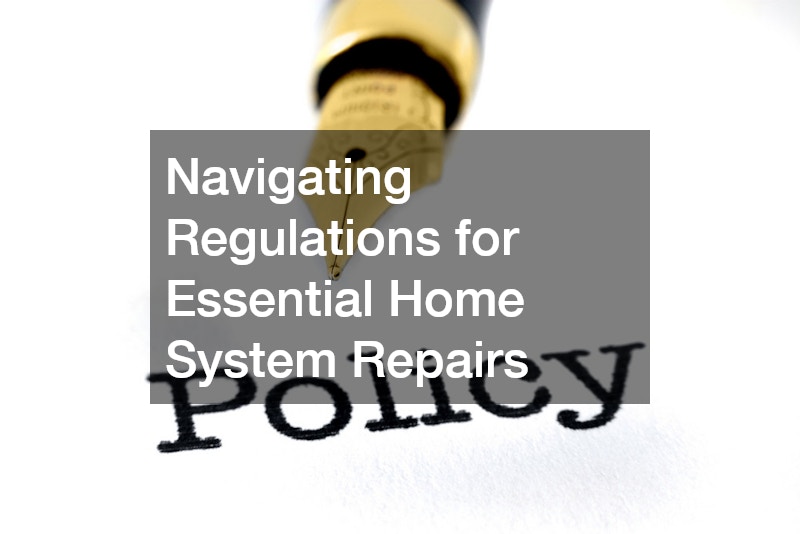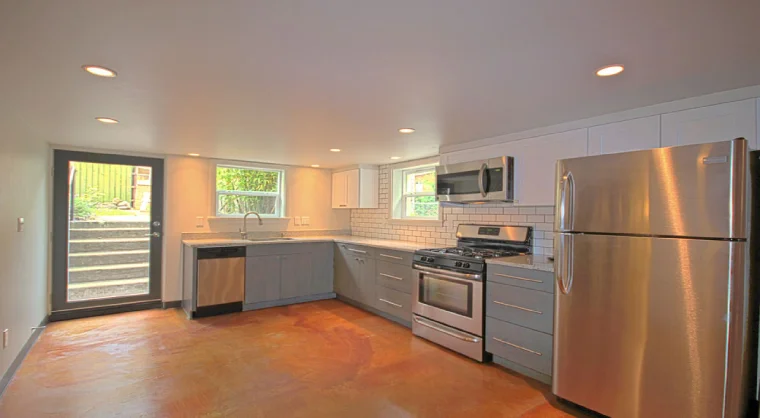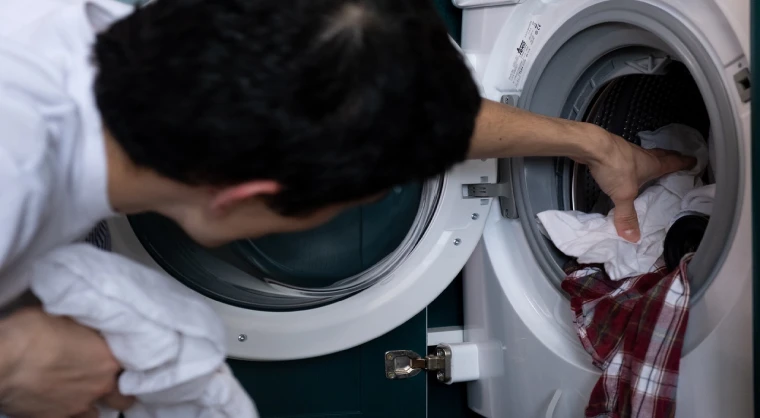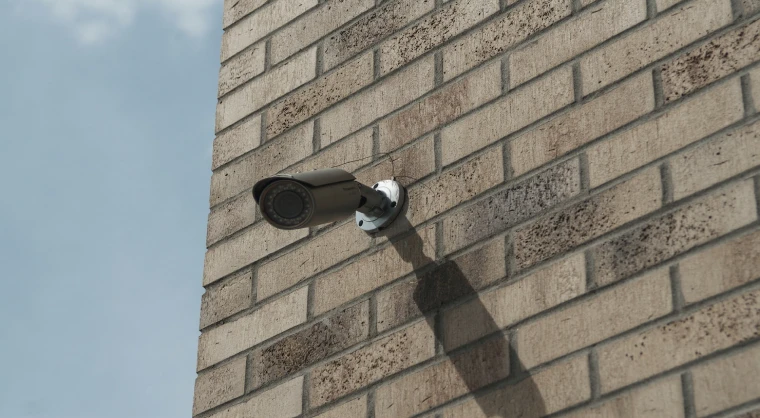Embarking on a remodeling project is an exciting endeavor for many homeowners. However, it’s crucial to take the right steps to ensure every aspect of the project meets local regulatory standards. Not only does compliance prevent potential legal issues, but it also ensures the safety and durability of your home improvements.
This article aims to walk you through essential compliance steps, from understanding permit requirements to simplifying your renovation process. You’ll also learn about common challenges and how to work seamlessly with professionals to ensure your project succeeds. Whether you’re planning plumbing repairs, pool pump repairs, or a complete home overhaul, being informed is key.
Incorporating local compliance into your remodeling project is not just about ticking boxes but is a fundamental part of achieving a safe, sustainable home environment. With regulations varying significantly from region to region, knowing what to expect can help you plan better and avoid unnecessary setbacks. Read on to explore essential guidelines for effective compliance in home repairs and improvements.
Key Steps to Ensure Compliance for Major Home Repairs

Before diving into a major remodeling project, it is vital to understand what compliance entails and why it matters. Generally, compliance involves meeting local building codes, zoning laws, and safety regulations. These guidelines ensure that any modifications to your home meet standardized safety and quality criteria.
Initiating a remodeling project without verifying compliance can result in significant fines and even the removal of unauthorized work. Homeowners should consult with local authorities or permit offices to discuss their planned projects. Understanding the scope of your project, whether it involves roof repairs or a new garage door installation, will determine the necessary permits and inspections required by your local government.
Documenting all communications and approvals is another crucial step in compliance. This not only helps in tracking the progress of your remodeling project but also provides invaluable records should disputes or inspections arise. Ensure that each stage of your project, such as basement wall crack repair or electrical repairs, is completed under the supervision of qualified professionals to adhere to all regulatory frameworks.
Understanding Permit Requirements for Structural Updates
When contemplating structural updates, acquiring the right permits is integral to the success of your remodeling project. Structural updates often involve significant changes to the framework of a home, including additions or alterations that could impact the stability and integrity of the building. Whether you are considering basement wall crack repair or extensive roof repairs, permits help ensure these changes are safe and conform to local codes.
Typically, permits are required for any work that affects the structure or safety of your home. This includes foundational work, significant interior renovations, or modifying the layout of your house. It is advisable to consult with local building inspectors or your city’s planning department to get a clear understanding of the specific requirements for your area.
Failing to obtain the necessary permits can lead to severe consequences, including fines, the need to undo completed work, and potential legal action. Thus, assessing your project’s specific requirements early in the process can save time and resources. By prioritizing compliance checks for your remodeling project, you ensure a smooth process from start to finish.
Navigating Regulations for Essential Home System Repairs

Essential home system repairs, such as sewer repairs, AC repairs, and electrical repairs, are critical areas where compliance is non-negotiable. These systems affect not only your home’s functionality but also its safety and efficiency. Ensuring that each system operates within local regulatory standards protects your investment and your home’s occupants.
For instance, plumbing repairs and sewer repairs require adherence to health and safety codes designed to prevent contamination and ensure proper waste management. AC repairs may involve adherence to energy-efficiency standards and even environmental regulations concerning refrigerants. Additionally, electrical repairs must abide by national electrical standards to prevent fire hazards and ensure reliable power distribution throughout your home.
A compliance-first approach for these repairs involves regular consultations with certified professionals who understand local codes and who can execute repairs that meet or exceed these standards. This proactive stance minimizes the risk of future failures and ensures the long-term sustainability of each critical home system in your remodeling project.
What Homeowners Should Know About Local Compliance for Upgrades
Local compliance laws for home upgrades are often nuanced and may vary considerably from one jurisdiction to another. Homeowners embarking on a remodeling project, whether it involves something as straightforward as a new garage door or more complex endeavors like large-scale electrical upgrades, must conduct thorough research into local codes and regulations.
Understanding what constitutes a major upgrade is vital, as some regulations may apply only to projects that exceed specific size or cost thresholds. For example, while minor aesthetic changes might not require in-depth compliance checks, significant overhauls — like expanding the square footage of a room — might necessitate multiple permits and inspections.
Regularly visiting your local city or county government website can provide valuable information on any recent updates or changes to compliance laws. Additionally, participating in community information sessions or workshops can help demystify complex regulations and provide insights into successfully navigating the compliance landscape for your remodeling project.
Essential Considerations for Home Improvement Projects and Permits

When planning a home improvement project, the importance of understanding the permit process cannot be overstated. Obtaining the correct permits is not merely a bureaucratic hurdle; it is a fundamental aspect of ensuring that your remodeling project complies with local building codes and safety standards. Major projects, such as structural changes or extensive electrical work, often necessitate multiple permits and careful oversight.
The first step in ensuring your project remains compliant is identifying which types of work require permits. For instance, permits are generally required for extensive renovations such as well pump repair services, new heating systems like water heater repairs, or changes that affect the structural integrity of your home, like expanding or removing walls.
Engaging with professionals can streamline this often-complex process. Contractors familiar with local regulations can assist in securing permits and ensure that each phase of the home improvement adheres to compliance mandates. By taking these considerations to heart, you can ensure a smoother, legal, and safer remodeling project.
How to Stay Informed About Local Guidelines for Home Repairs

Keeping abreast of local guidelines is indispensable for any homeowner undertaking a remodeling project. As these guidelines are periodically updated to accommodate new safety standards and building technologies, staying informed ensures compliance and prevents costly errors. Whether your project involves AC repairs or pool pump repairs, understanding local requirements is critical to success.
Subscribing to local government bulletins and newsletters provides a continuous stream of updates and information on recent changes to compliance regulations. Additionally, many cities host workshops and forums where homeowners can learn about best practices for home improvements and the latest local guidelines.
Networking with experienced contractors and other homeowners can also provide valuable insights into the ever-evolving landscape of home repair regulations. By cultivating a habit of ongoing education, you reinforce your capability to successfully navigate compliance challenges for your remodeling project.
The Importance of Following Regulations for Safety in Home Updates
The importance of adhering to regulations during home updates extends beyond legal obligations. Ensuring that your remodeling project complies with safety regulations safeguards your family, increases the longevity of your renovations, and protects property value. Before starting projects like roof repairs or plumbing repairs, homeowners must prioritize compliance for the sake of safety.
Local building codes are designed to mitigate risks such as structural failure, fires, and environmental hazards. Whether working on sewer repairs or securing the structural integrity of a newly added room, following these codes is critical to maintaining a safe home environment. Neglecting this can have real consequences, potentially endangering occupants and leading to substantial financial liability.
In the event of selling your home in the future, documented compliance with regulations assures prospective buyers of the quality and safety of improvements. Being proactive about safety showcases the value and pride in one’s home and is integral to enhancing the overall satisfaction of your remodeling project.
Tips for Ensuring Your Renovation Projects Meet Local Standards
Meeting local standards in your renovation projects hinges on thorough preparation and collaboration with experienced professionals. Early research into the specific permits and inspections required can provide a clear roadmap for your remodeling project. This foresight simplifies navigating the compliance process and aligns your objectives with local standards.
Begin by consulting your local building department’s resources, often available online, to outline the scope of work and any potential regulatory hurdles. Engaging with architects or contractors who have successfully managed similar projects can provide the expertise necessary to avoid pitfalls and navigate complex regulations smoothly.
Continual communication and documentation throughout the renovation process are vital. Regular updates and checkpoints during the project ensure that any compliance issues are addressed promptly and effectively, maintaining alignment with local standards and guaranteeing the successful completion of your remodeling project.
Understanding Local Requirements for Repairing Critical Home Systems
Repairing critical home systems, such as electrical repairs or AC repairs, calls for a comprehensive understanding of local requirements. These repairs often affect essential functions within your home, requiring strict adherence to safety protocols and codes. Ensuring compliance at this level is not just mandatory but necessary for maintaining optimal home health and safety.
Local building codes often specify the materials and techniques allowed in home system repairs. For instance, updating your electrical system may require adherence to the latest national electrical standards to mitigate risks of fire or electrical shock. Similarly, well pump repair services may need to conform to environmental guidelines that protect local aquifers and prevent contamination.
Experienced professionals familiar with these requirements can offer guidance on meeting these standards. Whether engaging in plumbing repairs, water heater repairs, or AC repairs, their expertise in local codes ensures compliance, thereby safeguarding your home against future issues and enhancing the longevity of these critical systems.
Common Regulatory Challenges in Home Repair Projects
Throughout a remodeling project, encountering regulatory challenges is not uncommon, especially in larger undertakings involving multiple facets such as structural, plumbing, and HVAC systems. Anticipating these challenges can help in devising effective strategies to navigate them smoothly. It is crucial to be aware of potential hurdles such as zoning laws, variance applications, and historical preservation requirements.
One common challenge is dealing with outdated infrastructure that no longer meets current code requirements. This is often seen in older homes needing comprehensive updates for systems like plumbing repairs or electrical refurbishments. Preparing for such issues by discussing potential challenges with contractors or building inspectors can provide valuable insights and prevent project delays.
Another challenge may arise from discrepancies between local and state guidelines, necessitating additional paperwork or permits for some projects. With complex regulations often in play, having a robust compliance plan tailored to your specific remodeling project is essential to overcoming these challenges.
Simplifying Your Renovation Process with Local Insights
Simplifying the renovation process begins with leveraging local insights into compliance requirements. Local contractors, well-versed in area-specific codes and permits, can provide invaluable guidance and support throughout your remodeling project. Their insight minimizes the guesswork and reduces the risk of inadvertent non-compliance.
Discussing your vision and project goals with these professionals and assessing any constraints imposed by local regulations allows for more effective planning. Whether addressing plumbing repairs or considering an entirely new addition, tailoring your approach according to local standards simplifies the complexity of compliance.
Furthermore, tapping into community resources such as local building forums and workshops equips homeowners with the knowledge to anticipate compliance hurdles. By incorporating local insights into your renovation strategy, you streamline processes and enhance your project’s efficiency and adherence to codes.
How to Work with Professionals to Ensure Regulatory Compliance
Collaborating with skilled professionals is key to ensuring regulatory compliance in your remodeling project. These experts understand the nuances of local laws and have the experience needed to guide your project through the compliance maze. By working closely with qualified contractors, architects, and inspectors, you facilitate a smoother, more efficient renovation process.
Clear communication with your chosen professionals about the scope and details of your project is essential. This ensures everyone has a mutual understanding of compliance priorities, whether it’s navigating complex electrical repairs or ensuring proper permits for adding a new garage door. Regular check-ins and progress reports can help maintain the project’s alignment with local standards.
In addition to hiring experienced professionals, consider engaging with compliance experts or consultants for an added layer of assurance. These specialists provide critical insights and can help manage the regulatory aspects of your project, allowing you to focus on realizing your renovation vision without the added stress of compliance concerns.
Planning Your Home Repairs: A Guide to Local Requirements
Embarking on home repairs necessitates careful planning, especially in terms of local compliance requirements. It begins with a comprehensive assessment of your renovation goals and understanding how they intersect with local codes and regulations. This guide to planning your remodeling project emphasizes the importance of thorough preparation.
Firstly, review your local building codes to identify applicable rules for projects such as basement wall crack repair or roof repairs. This preliminary research aids in mapping out the necessary permits and inspections, providing a clear path forward for your endorsed enhancements.
Engage with community resources and inspections to obtain real-time data about local requirements and best practices. By leveraging these insights and embedding them into your project plan, you ensure robust alignment with compliance regulations and safeguard the success of your remodeling project from the outset.
Navigating the compliance landscape for a remodeling project can be a daunting task, but it is an integral part of ensuring your home’s integrity and safety. From obtaining necessary permits to following structured guidelines for critical home systems, each step is vital for a successful renovation. By understanding local requirements and working closely with professionals, homeowners can effectively meet compliance challenges.
Remaining informed about evolving regulations and utilizing local insights are invaluable strategies for seamless renovation execution. Whether you’re tackling plumbing repairs, well pump repair services, or new installations, aligning your project with compliance standards enhances both the safety and value of your home.
Ultimately, following these guidelines not only protects your investment but also ensures peace of mind as you enhance your living space. By integrating compliance into the planning and execution phases of your project, your home repairs and improvements will stand the test of time, providing comfort and security for years to come.





